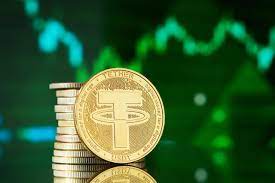A UN report has raised concerns over Tether, a major cryptocurrency platform, becoming a preferred choice for money launderers and fraudsters in Southeast Asia. The report, released by the UN’s Office on Drugs and Crime, identifies Tether's crypto token as a central element in various scams, including deceptive romance frauds like "pig butchering."
Law enforcement and financial intelligence agencies have witnessed a surge in the use of Tether for sophisticated and high-speed money laundering operations. The report highlights the synergy between cryptocurrency evolution and rapid technological advancements, amplifying the age-old practice of Southeast Asia's organized crime groups using black market casinos for illicit fund laundering.
The report singles out online gambling platforms, especially those operating illegally, as popular channels for cryptocurrency-based money launderers, with a specific emphasis on Tether. According to Jeremy Douglas of the UN’s Office on Drugs and Crime, the fusion of unregulated online casinos and crypto has empowered organized crime, creating a parallel banking system using new technologies.
Tether, being a stablecoin pegged to the US dollar with approximately $95 billion in circulation, facilitates quick and irreversible transactions on the blockchain. Criminal prosecutor Erin West notes that the coin's speed and irrevocability make it a preferred choice for "pig butchers," who exploit victims emotionally and financially.
Despite enforcement actions against digital assets, Tether remains a favored method for criminal groups to move funds. Some casinos are even specializing in handling Tether transactions. The report cites instances of money laundering syndicates in Myanmar and Cambodia openly advertising Tether exchange services on busy streets.
While Tether announced cooperation with US authorities to curb illicit use, the report highlights a 27% surge in blacklisted Tether wallets. Tether has faced regulatory scrutiny, including a $41 million fine from the Commodity Futures Trading Commission for allegedly misleading statements about backing its stablecoin with sufficient dollars.
In November last year, the Financial Times uncovered Tether's deposit of over $1 billion with a subsidiary of Britannia Financial Group, raising additional concerns about its financial dealings and regulatory compliance.
 Nikolas Sargeant
Nikolas Sargeant





